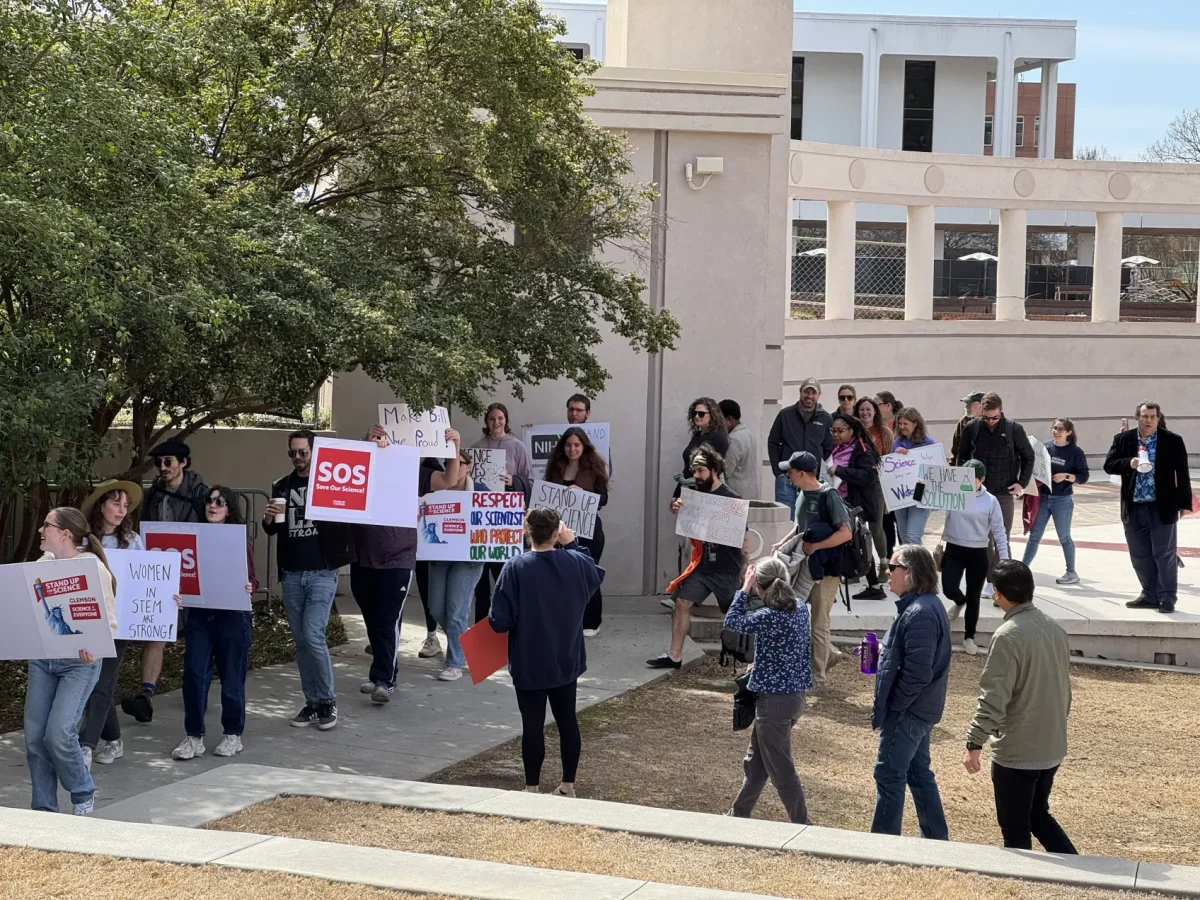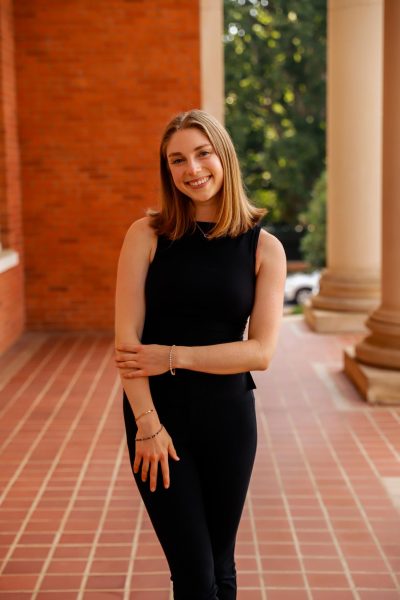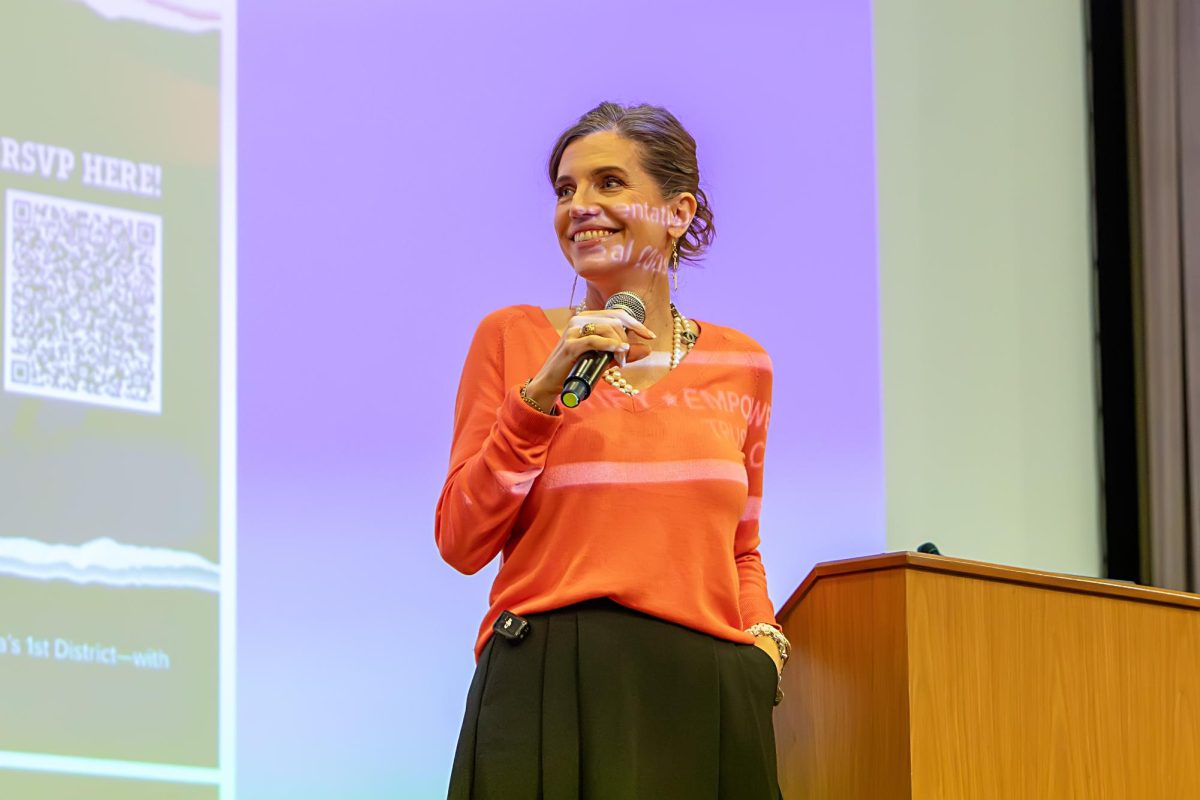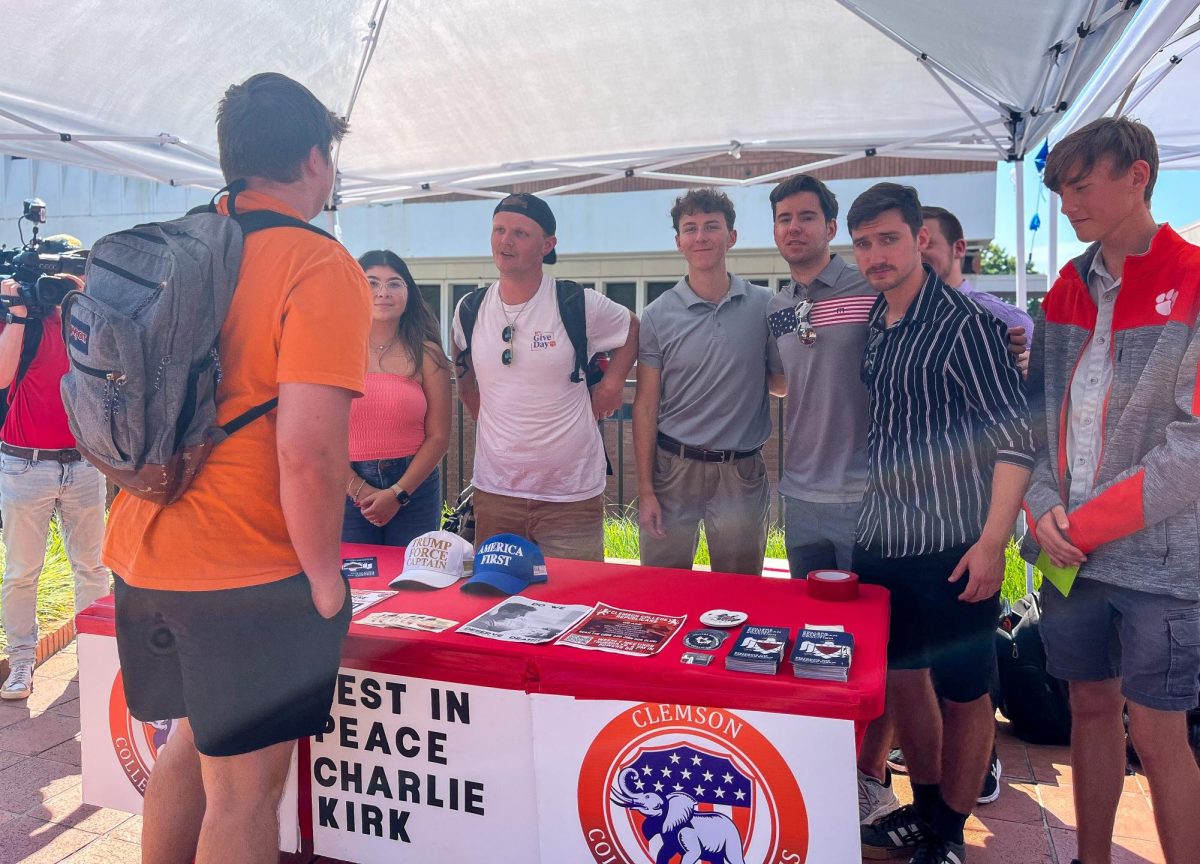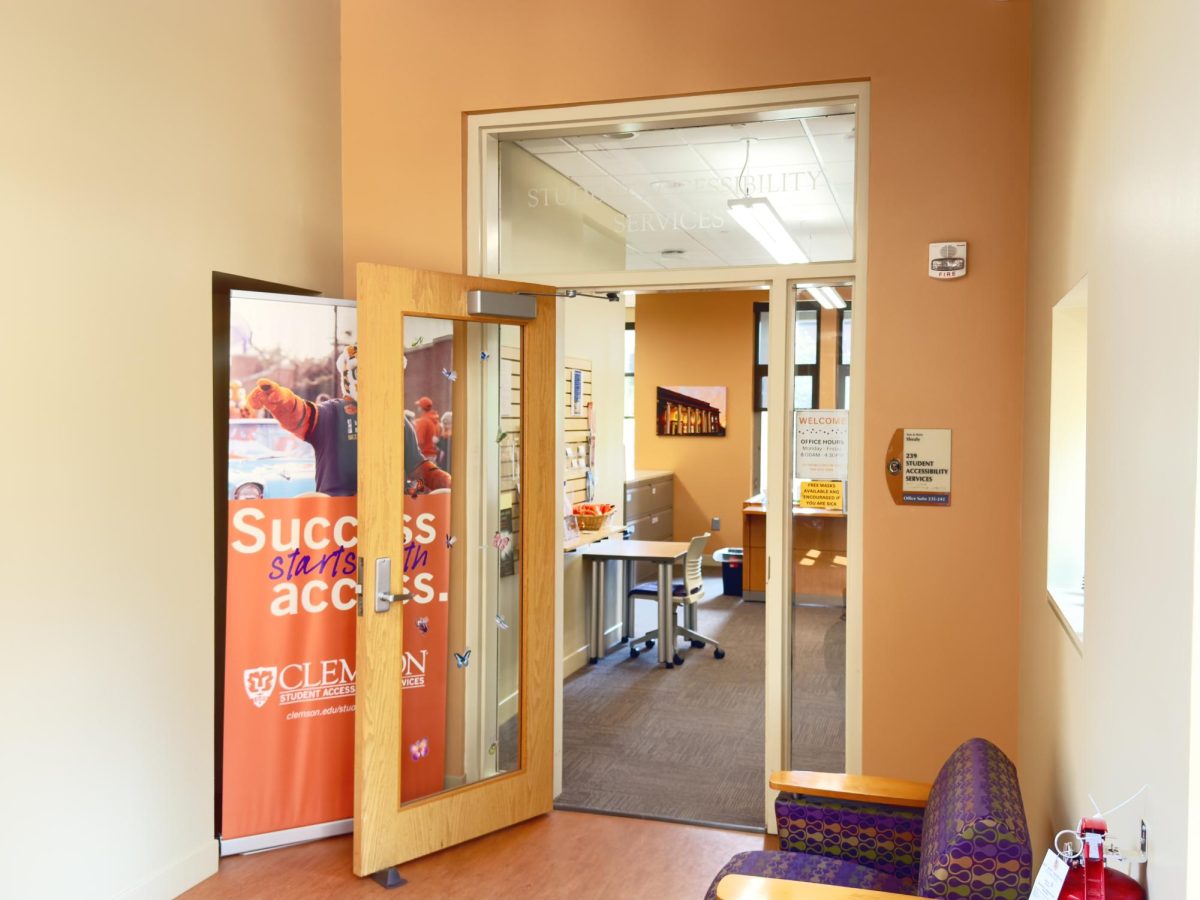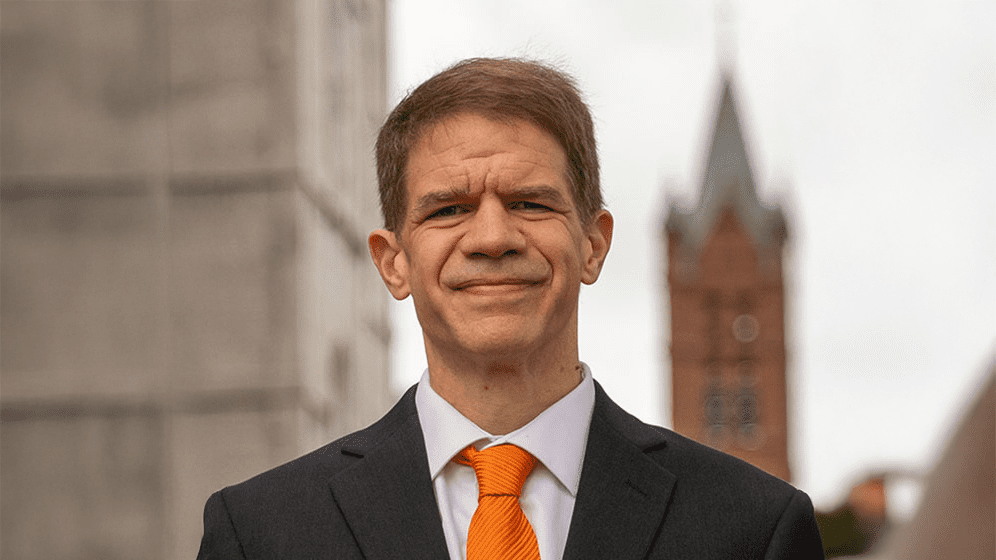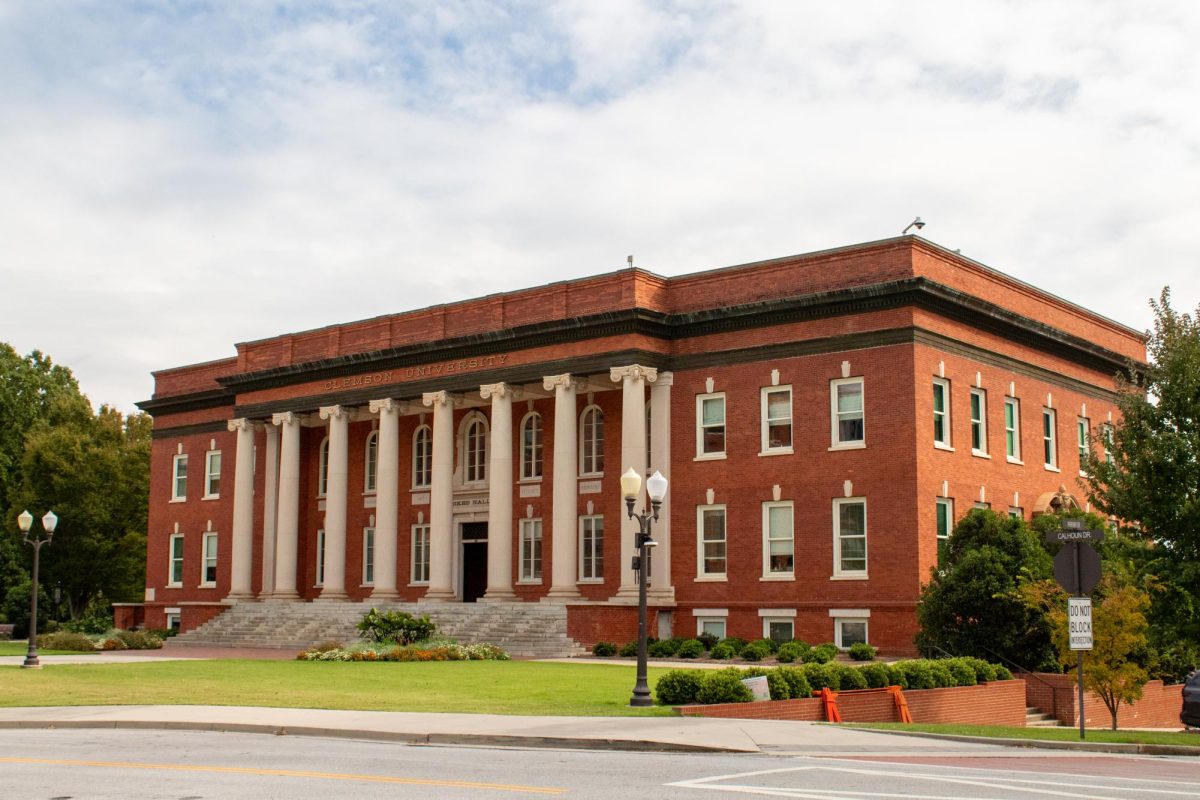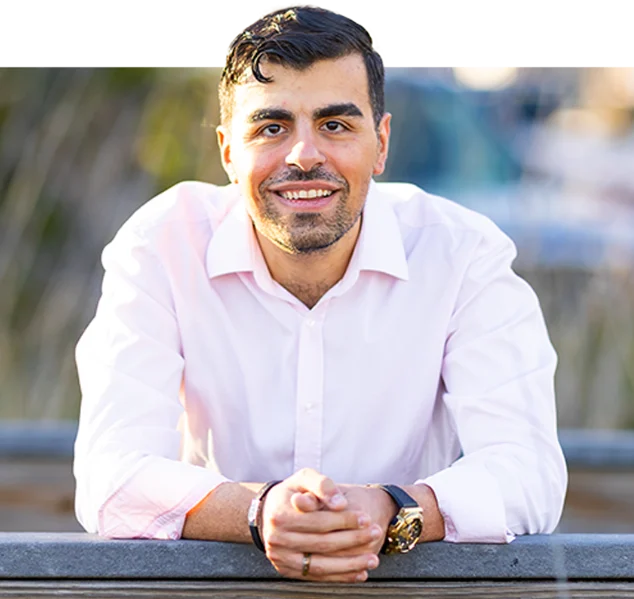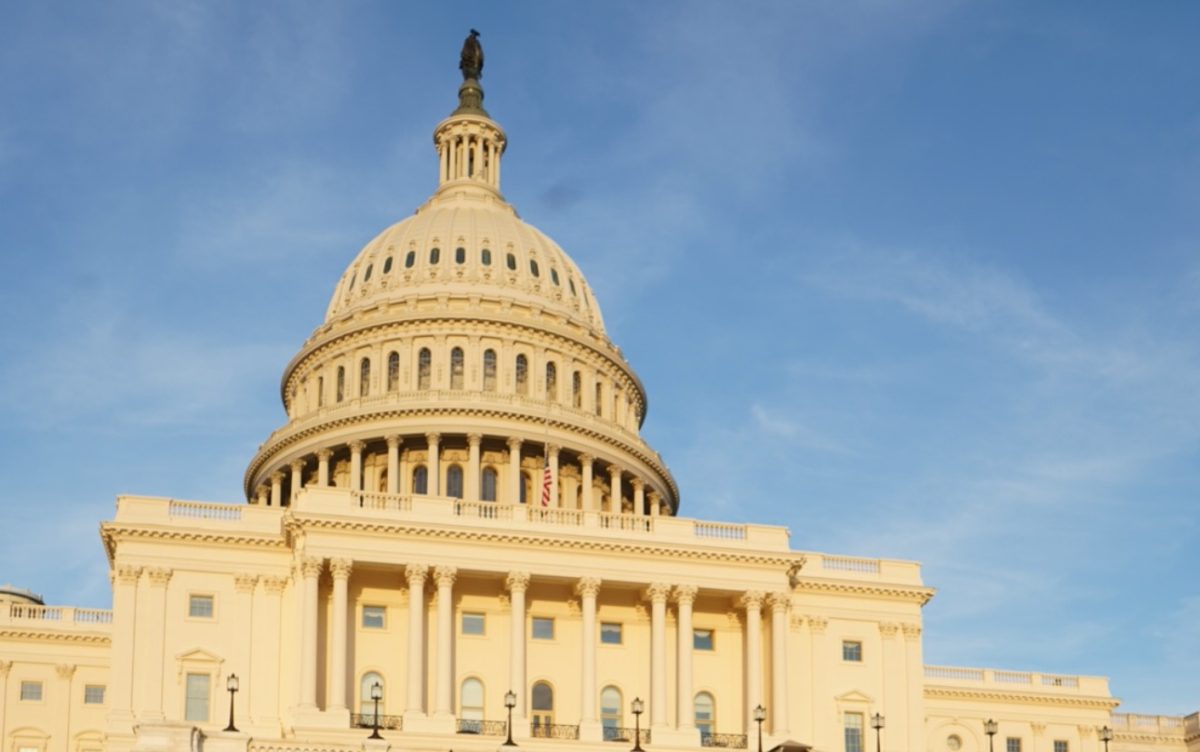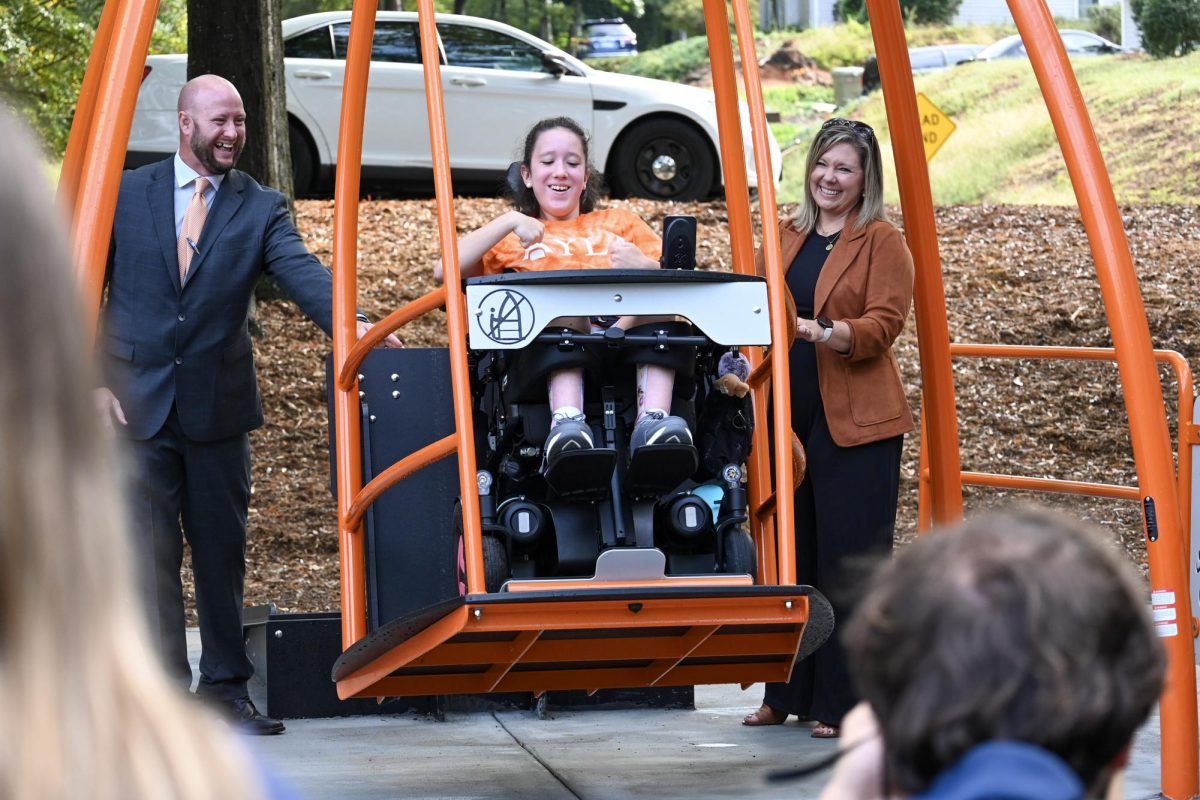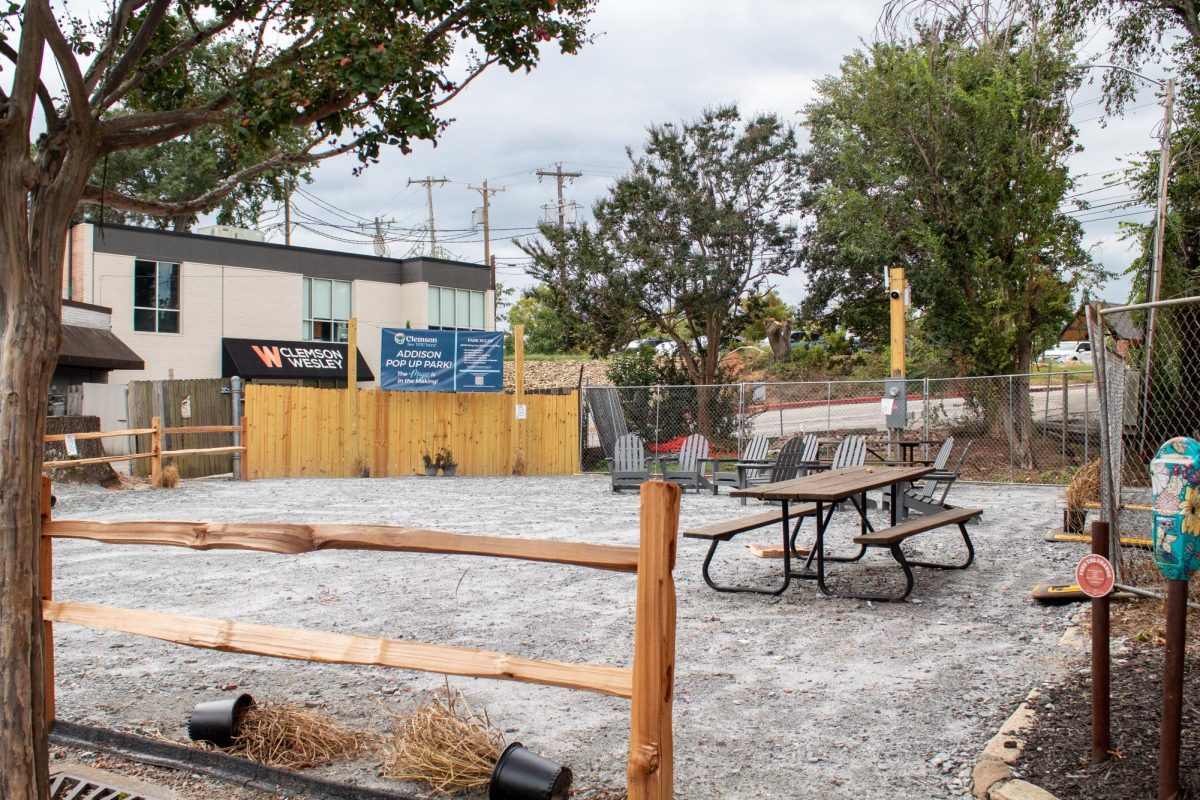A group of around 30 undergraduate and graduate students, professors and scientists gathered at Clemson University’s amphitheater on Friday at noon to protest the Trump administration’s reduction of funding for scientific research.
Michael Childress, an associate professor in the forestry and environmental conservation department and biological sciences department at the University, acted as a leader for the group.
Many individuals held signs with phrases such as “stand up for science,” “women in STEM are strong,” “science is essential,” “science not silence” and more.
The group rallied under an organization called Stand Up for Science, which was started by a group of graduate students in response to recent cuts to federal government agencies that fund science, according to Childress.
These students were “very concerned about whether there would be a job for them after they graduated,” Childress told The Tiger in an interview.
Stand Up for Science was a nationwide rally planned for March 7 with the aim to end censorship and political interference in science, to secure and expand scientific funding and to defend diversity, equity, inclusion and accessibility in science, according to the organization’s website.
“It’s very obvious that the current administration has a misunderstanding of how valuable science is, and thinks that they can just reduce the amount of money that’s invested in science and still get the same positive benefits that come from it,” Childress said.
He noted that people’s futures are at risk when science funding is cut and that these cuts result in less cancer research, environmental protection and the discovery of new drugs.
The National Institute of Health announced on Feb. 5 that it would be limiting indirect funding for scientific research projects to 15% — a 50% decrease from the current 30%. The Institute intended to accomplish this by cutting funding for grants that finance research institutions. With this limitation, an estimated $4 billion would be saved.
On March 5, Angel Kelley, a U.S. district judge for the District of Massachusetts, indefinitely blocked this attempt.
The Trump administration defines indirect spending as “administrative bloat,” as the United States is currently over $36 trillion in debt. These cuts are one method that the administration is using to decrease this “bloat.”
Childress also mentioned Dr. Anthony Fauci in a speech during the rally. Fauci is an immunologist and physician-scientist, the former director of the United States National Institute of Allergy and Infectious Diseases from 1984-2022 and the chief medical advisor to former President Joe Biden from 2021-2022.
Childress claimed that Fauci “suffered a great deal of persecution for simply being a good scientist.”
Fauci publicly testified at a hearing on June 3, 2024, according to a press release from the United States Committee on Oversight and Government Reform. This hearing was held by the Select Subcommittee on the Coronavirus Pandemic and named “A Hearing with Dr. Anthony Fauci.”
During the hearing, Fauci both “refused to take responsibility for the actions of his office” and “confirmed previous, concerning testimony” regarding the COVID-19 outbreak and pandemic.
Specifically, Fauci admitted that his recommendation for people to social distance and stay 6 feet apart was “arbitrary, not based on science, and ‘sort of just appeared,’” according to a press release from the United States Committee on Oversight and Government Reform. Ultimately, the Select Subcommittee held Fauci accountable for failures during the COVID-19 pandemic.
Olivia Spencer, a junior civil engineering major, believes that scientists are dedicated to serving the state of South Carolina with their research and through accomplishments in classes, creative inquiry work and organizations.
“(The funding cuts) kind of destroy the idea of an R1 institution,” Spencer told The Tiger in an interview.
Spencer, along with the rest of the group, wants to see institutions and research preserved to continue helping humanity through their work.
Melanie Garcia, a fourth-year Ph.D. candidate at Clemson, and Jazmine Eccles, a third-year Ph.D. candidate, also spoke with The Tiger.
“We were just trying to inform the public of what’s going on,” Garcia told The Tiger. She believes that misinformation is currently being spread about the topic.
The funding cuts will impact not only scientists and their research but also the general public through impacts on healthcare, pollution and water systems, according to Garcia.
“My research is something that this new administration claims that they want to study and they want to fund,” Eccles told The Tiger. “I study obesity … and so from my perspective, the decrease in funding is going to directly impact our ability to research the things that they want to understand more about.”
Eccles also teaches biology majors at Clemson as a graduate teaching assistant and wants to inform them, and overall the next generation of scientists, of what their futures hold. She wants to ensure that any misinformation is disproved so that scientists can spread awareness about how the public is affected by the administration’s actions.
Childress believes that Clemson University is “a wonderful place to be a scientist.” However, without financial support from the federal government, “we would not be a wonderful place to train scientists.”



